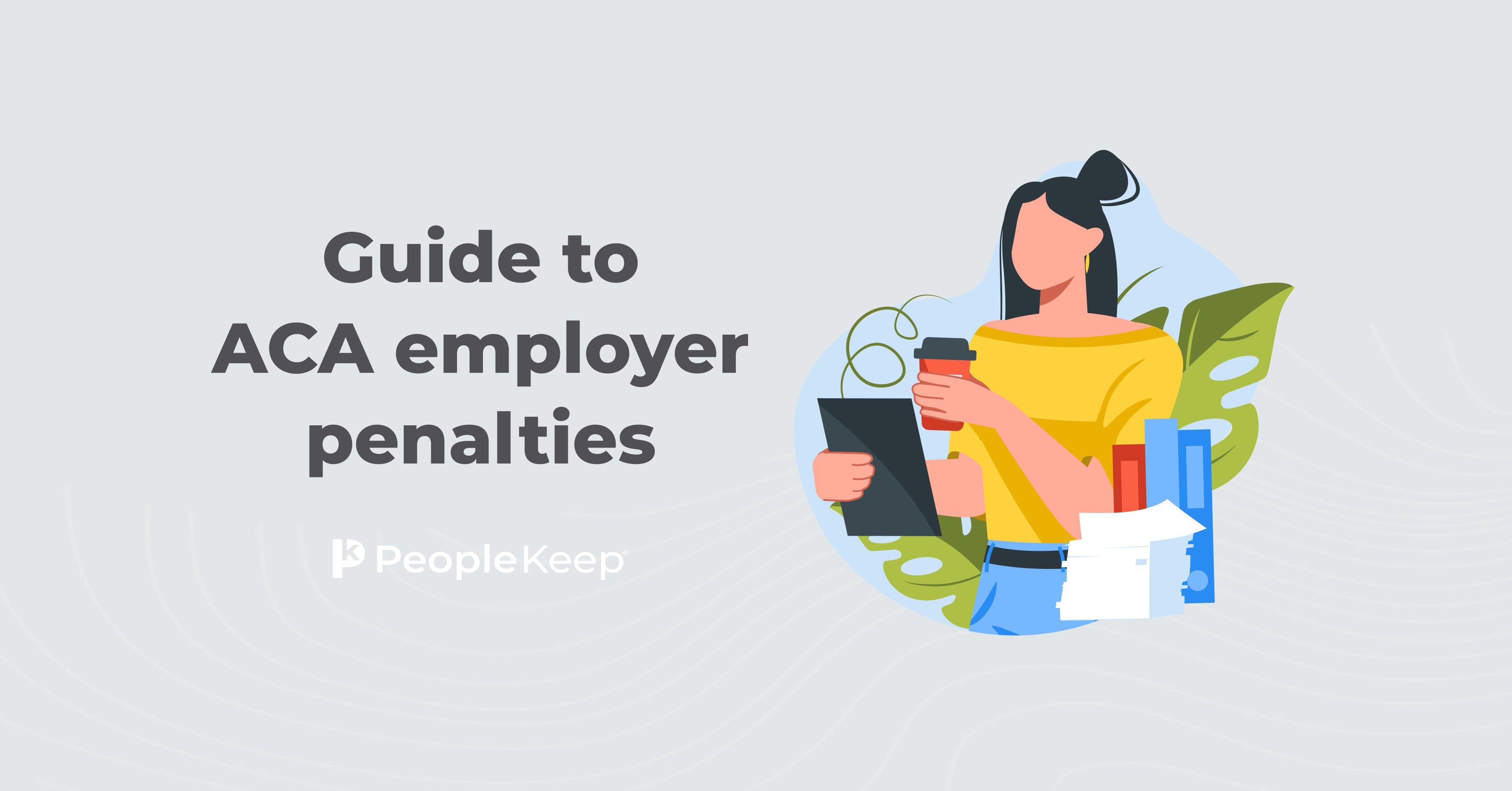Small business health insurance in Texas
Navigating the complexities of health insurance can be challenging for small businesses in Texas. As a hub of entrepreneurship and a growing technology sector, small businesses must do everything possible to attract and retain top talent, including offering comprehensive health benefits to their employees.
Learn what your health benefit options are and how PeopleKeep by Remodel Health can help you offer an affordable and personalized health reimbursement arrangement (HRA) that your employees will appreciate.

- Intro Texas small business health insurance information
- Chapter 1 Overview of small business health insurance in Texas
- Chapter 2 Importance of small business health insurance
- Chapter 3 Small business health insurance options in Texas
- Chapter 4 The average cost of health insurance in Texas
- Chapter 5 What plans are available on the individual market in Texas?
- Chapter 6 COBRA in Texas
- Chapter 7 How PeopleKeep and Remodel Health can help Texas employers
Texas small business health insurance information
Texas employs nearly 467,000 small businesses with fewer than 50 employees1. Yet, less than 38% of these organizations currently offer health insurance to their workforce, often due to budget restraints and limited plan options2.
Knowing what health insurance coverage is available to small businesses in Texas is essential for finding a health benefit your employees will love. Without the right benefits, your employees may leave for companies that offer better benefits. The Lone Star State has several options that you can choose from and tailor to meet your workers’ diverse needs.
This guide to small business health insurance in Texas will dive into the importance of offering health coverage to employees, your available options, and alternatives to group coverage that empower employers and employees.
Overview of small business health insurance in Texas
Providing solid health coverage is one of the most effective ways for Texas employers to support their teams, showing that you’re invested in their health and well-being. This helps create a positive work environment where your employees want to be. Small businesses across the state have several types of health benefits to consider, each offering different levels of flexibility, cost, and administrative requirements.
Many smaller companies assume that a traditional group policy is their only option. However, many can’t afford to offer a group plan thanks to expensive premiums and annual rate increases. You may also not meet the plan’s minimum requirements, leaving many small businesses without health benefits.
Thankfully, you can offer a defined contribution plan, like an HRA. Employers can leverage this versatile alternative to reimburse employees tax-free for their qualifying medical expenses and individual health insurance premiums. This model typically offers more flexibility and customization than standard group health insurance, making it an appealing choice for many Texas businesses.
Importance of small business health insurance
Health insurance is a crucial factor that small businesses must consider, as it impacts both the quality of care available to employees and the overall health of the company. Here’s why you should offer health benefits to your team.
Satisfying the Affordable Care Act’s employer mandate
Under the Affordable Care Act’s employer mandate, organizations with 50 or more full-time equivalent employees (FTEs) — also known as applicable large employers (ALEs) — must offer affordable health insurance coverage to at least 95% of their full-time employees and dependents. This insurance must meet minimum essential coverage (MEC) standards.
You could also face penalties if your employer-sponsored coverage doesn’t pay for at least 60% of the covered healthcare expenses for the standard population. This is known as minimum value.
If you fail to offer coverage that meets these requirements and at least one full-time employee gets a subsidy on the individual health insurance market, you could face steep penalties.
While this federal mandate isn’t specific to Texas, ALEs in the state must comply. If you have fewer than 50 FTEs, you don’t need to offer health coverage. However, it’s in your best interest to do so.
Benefits of providing health insurance to employees
Offering health insurance to employees comes with many benefits beyond meeting federal compliance requirements.
Providing health benefits has many benefits, including:
- Increased retention and employee loyalty. Competitive benefits help reduce turnover and improve satisfaction for smaller Texas businesses vying to keep top-notch talent. Not offering a health benefit could lead to top candidates declining your job offer or having your current employees look for new opportunities.
- Stronger recruitment efforts. According to PeopleKeep’s 2024 Employee Benefits Survey, 81% of employees said an employer’s benefits package is an important factor in whether they accept a job. Furthermore, we found that 92% of employees value health benefits.
- Improved wellness and productivity. Health insurance contributes to employee wellness—employees can more readily access necessary healthcare services, engage in preventative measures, and often experience fewer sick days, all of which boost productivity.
- Tax advantages. Organizations may be able to deduct the portion of premiums they pay for employees, as well as any contributions to health savings accounts (HSAs). Employees also share in these savings, with most employees paying for premiums with pre-tax deductions. This reduces their taxable income and, therefore, tax liability.
By providing health benefits, businesses not only foster a healthier, more engaged workforce but also enhance their reputation as employers of choice.

Small business health insurance options in Texas
In Texas, small business owners have multiple avenues to provide health coverage for their employees, each with distinct advantages and considerations. Navigating these options can be overwhelming for small employers. We’ll break down your options so you can weigh the advantages and disadvantages.
Some of the options available to small businesses include:
- Traditional group health insurance
- Health reimbursement arrangements (HRAs)
- Self-funded medical plans
- Association health plans (AHPs)
- Supplemental and ancillary health insurance benefits
Traditional fully-insured group health insurance
Small businesses in Texas often opt for traditional group health insurance due to their familiarity and the ability to provide employees with essential health benefits and access to large networks of doctors. Employers choose the group plan they want to offer all their employees, and share the cost of premiums with enrolled members at a discounted rate.
There are four main types of group plans:
- Preferred provider organization plans (PPOs). The most common type of plan is a PPO. It gives policyholders a network of preferred providers who offer care at a lower cost. Members can seek care outside of the network, but often at a higher price.
- Health maintenance organization plans (HMOs). HMOs offer a wide range of healthcare services through a network of providers that either contract exclusively with the HMO or agree to provide medical care at a discounted rate. Members must select a primary care physician (PCP) and get referrals to see a specialist.
- Exclusive provider organization plans (EPOs). An EPO combines the preferred provider network of an HMO with the freedom of seeing a specialist without a referral that a PPO offers. However, these plans don’t cover care from out-of-network providers.
- Point of service plans (POSs). With a POS plan, you pay less if you see in-network doctors and specialists. Like an HMO, you need a referral from a primary care doctor to see a specialist.
While group plans are the traditional route for offering benefits, they come with high costs for small employers. In 2025, the average single coverage premium was $9,325 annually ($777/month) and $26,993 annually for family coverage ($2,249/month). Employers typically cover a significant portion of these costs, adding to the financial burden. For example, employers covered 75% of their employees’ family insurance premiums on average in 20253.
Group plans also typically require at least 70% of your employees to opt into coverage. In Texas, 75% of employees must enroll in your group plan or have coverage from another source. Otherwise, you can’t offer the plan.
Texas small employers seeking group health insurance can shop for a plan on the federal Small Business Health Options Program (SHOP) Marketplace. Small group plans are only for businesses with fewer than 50 FTEs.
If you have fewer than 25 FTEs and pay an average annual salary of $56,000 or less per employee, you may qualify for the small business health care tax credit. To qualify, you must offer SHOP marketplace coverage and pay at least 50% of your employees’ premiums. You can use the Marketplace’s Small Business Tax Credit Calculator to determine your eligibility for the federal tax credits.
Unfortunately, Texas doesn’t have any on-exchange SHOP plans available at this time. However, there are small group plans available. According to HealthCare.gov's rate review site, the following health insurance companies offer small group plans in Texas in 20264.
|
Insurance company |
Network type |
SHOP status |
|
Baylor Scott & White Health Plan |
HMO |
Off-exchange |
|
Baylor Scott & White Insurance Company |
PPO |
Off-exchange |
|
Blue Cross Blue Shield of Texas |
HMO, PPO |
Off-exchange |
|
Integon National Insurance Company |
PPO |
Off-exchange |
|
Memorial Hermann Commercial Health Plan, Inc. |
HMO |
Off-exchange |
|
Memorial Hermann Health Insurance Company |
Off-exchange |
|
|
UnitedHealthcare Insurance Company |
Off-exchange |
|
|
UnitedHealthcare of Texas, Inc. |
Off-exchange |
Integrated HRAs
Texas small employers that want to keep offering a group health insurance plan can enhance their coverage with an integrated HRA. Sometimes referred to as a group coverage HRA (GCHRA), this type of benefit is available to employers of any size that already offer a group plan. Only employees who are participating in your group policy can use the HRA.
A GCHRA lets you set aside a monthly, tax-free reimbursement amount that employees can use for eligible medical expenses. After an employee submits proof of a qualified out-of-pocket cost, you reimburse them up to their allowance. However, premiums are ineligible for reimbursement with a GCHRA.
Employees can use the allowance for expenses that your group insurance plan doesn’t fully take care of, including:
- Deductibles: This is the portion that employees must pay out of pocket before their insurance carrier starts contributing to their healthcare costs.
- Coinsurance: This is the percentage of a medical bill that employees are responsible for after they have met their annual deductible.
- Coinsurance: This is a flat amount that employees will pay when they receive certain covered services.
Texas employers of any size and industry can design a GCHRA to fit the needs and budget of their organization. You can pair this type of HRA with any kind of group policy, but it’s beneficial when paired with high deductible health plans (HDHPs). This approach can help offset higher upfront costs for employees while allowing employers to take advantage of lower premiums.
Unlike other HRA types, GCHRAs don’t come with set minimum or maximum contribution requirements. That gives employers more flexibility to design the benefit in a way that aligns with their financial goals. You can also tailor reimbursements and eligibility across seven employee classes for even more customization.
Stand-alone HRAs
If you compare individual and group health plans in Texas, you’ll notice that individual healthcare coverage is more affordable than employer-sponsored policies.
Below are the monthly premiums for a 50-year-old with a silver plan in a few Texas counties in 2026:
|
County |
Small group coverage |
Individual coverage |
|
Llano County |
$733.87 |
$719.53 |
|
Burnet County |
$733.87 |
$719.53 |
|
Blanco County |
$733.87 |
$719.53 |
|
Caldwell County |
$733.87 |
$719.53 |
|
Lee County |
$733.87 |
$719.53 |
|
Fayette County |
$733.87 |
$719.53 |
|
Hays County |
$729.99 |
$719.53 |
|
Travis County |
$729.99 |
$719.53 |
|
Williamson County |
$729.99 |
$719.53 |
|
El Paso County |
$620.51 |
$608.44 |
All table data from Ideon’s 2026 premium comparison map5.
Stand-alone HRAs give employees the freedom to purchase their own individual health insurance, while employers reimburse them for premiums and qualified medical expenses. This type of HRA allows businesses to offer meaningful health benefits without committing to a traditional group policy, creating both cost predictability and flexibility.
There are two main types of stand-alone HRAs:
- Available to employers of any size, the individual coverage HRA (ICHRA) has no set minimum or maximum funding requirements, making it easy to tailor to your budget. You can structure the benefit by employee classes, age, or family status—such as offering different allowances for single employees versus employees with dependents. Employees must have a qualifying individual health insurance plan to use this benefit.
- For ALEs, an ICHRA can also be an affordable alternative to group insurance when meeting ACA employer mandate requirements.
- Designed for businesses with fewer than 50 full-time employees, a qualified small employer HRA (QSEHRA) has no minimum contribution requirement but does have IRS-set annual maximum caps. To participate, employees must have a health plan that provides minimum essential coverage (MEC).
Since individual premiums are typically more affordable than small group rates across several Texas counties, HRAs provide a robust solution for budget-conscious organizations.
Self-funded health plans
A self-funded approach lets Texas employers design and finance their own group health plan directly. While this offers more control over plan features and spending, it also means taking on additional risk and handling extra administrative responsibilities.
To help balance those risks, many smaller employers consider level-funded plans—an option that blends self-funding with stop-loss coverage from an insurance carrier. Even so, the potential for unpredictable claims costs and increased administrative work may make self-funded options less appealing for small companies with limited budgets and resources.
Instead of offering a self-funded group plan, you can offer a stand-alone HRA like the ICHRA. This allows you to reduce risk while still having control over your budget.
Association health plans
Association health plans (AHPs) allow small employers and self-employed individuals to band together—typically through a shared industry or region—to purchase health coverage as a larger group. Pooling resources can sometimes lead to lower premiums or more favorable insurance terms.
AHPs operate similarly to standard group health insurance, but they don’t always have to comply with every ACA requirement and generally aren’t available to ALEs. It’s also worth keeping in mind that AHPs may come with more limited benefit choices, which may not meet the needs of all employees.
For organizations seeking more customization or greater cost control, an HRA is often the more adaptable and budget-friendly option.
Supplemental and ancillary benefits
Texas employers can strengthen their overall benefits strategy by adding supplemental or ancillary coverage alongside their core health insurance offering. These add-on plans fill gaps in major medical coverage or provide financial protection for specific events or services that traditional insurance doesn’t fully address.
Although many of these options don’t qualify as MEC, they can easily complement major medical plans or be paired with HRAs to create a more complete benefits package.
Common supplemental and ancillary options include:
- Critical illness insurance helps employees manage costs after being diagnosed with a serious health condition like cancer, stroke, or heart disease.
- Accident insurance provides financial support for unexpected injuries that lead to out-of-pocket expenses.
- Dental and vision insurance are stand-alone policies that cover preventative and essential services not included in most major medical plans. Many dental and vision expenses are also eligible expenses through an HRA.
- Hospital indemnity insurance offers a fixed payment to help offset costs from hospital stays that their major medical plan doesn’t fully cover.
- Health savings accounts (HSAs) are tax-advantaged accounts available to employees enrolled in HSA-qualified health plans. Both employers and employees can contribute to the HSA; however, the employee always owns the account and any funds within it, which they can use to buy current or future healthcare costs.
- Flexible spending accounts (FSAs) let employees set aside pre-tax money for eligible medical costs, although FSA dollars generally can’t be used to pay insurance premiums.
These additional plans improve the overall quality of care for employees and can also distinguish your organization’s benefits package from competitors.
Find out which HRA's are the best fit for your team.
The average cost of health insurance in Texas
Health insurance pricing for Texas employers varies based on several factors, such as:
- Employee age
- Total number of covered employees
- The type of group plan selected
- Household size
- ZIP code
- Medical history (for large-group underwriting)
However, individual health insurance uses different determining factors from group health plans.
Under the ACA, individual plan premiums are influenced by:
- Age
- Where the employee lives
- Tobacco use
- Family status
- Metallic tier of coverage, such as bronze, silver, gold, and platinum
According to 2026 data from KFF, the following are the average lowest-cost premiums for a 40-year-old in Texas across each metal level6.
|
Average lowest-cost bronze premium |
Average lowest-cost silver premium |
Average benchmark premium (second-lowest-cost silver plan) |
Average lowest-cost gold premium |
|
$426 |
$651 |
$661 |
$570 |
All public marketplace plans must meet MEC requirements and include the ACA’s essential health benefits. Once someone reaches their annual out-of-pocket maximum for covered services, their insurer will cover 100% of the remaining eligible expenses for the remainder of the plan year.
Private insurance marketplaces also offer ACA-compliant plans along with non-ACA options, including supplemental and ancillary products.
What plans are available on the individual market in Texas?
Individuals and families in Texas searching for health insurance plans can shop for a policy on the individual market. Residents can buy a qualified plan on the federal Health Insurance Marketplace, HealthCare.gov6. Almost 4 million Texas residents enrolled in coverage through the Health Insurance Marketplace during the 2025 Open Enrollment Period.
The following is a list of health insurance carriers offering individual plans in 2026.
|
Insurance company |
On- or off-exchange |
|
Aetna Health Inc. |
On- and off-exchange plans |
|
Baylor Scott & White Insurance Company |
Off-exchange |
|
Blue Cross Blue Shield of Texas |
On and off-exchange |
|
Celtic Insurance Company (Ambetter) |
On- and off-exchange plans |
|
CHRISTUS Health Plan |
On- and off-exchange plans |
|
Cigna HealthCare of Texas, Inc. |
On- and off-exchange |
|
Community First Insurance Plans |
On- and off-exchange |
|
Community Health Choice, Inc. |
On- and off-exchange |
|
Imperial Insurance Companies, Inc. |
On- and off-exchange |
|
Moda Health Plan, Inc. |
On- and off-exchange |
|
Molina Healthcare of Texas, Inc. |
On- and off-exchange |
|
Oscar Insurance Company |
On- and off-exchange |
|
Scott and White Health Plan |
On- and off-exchange |
|
Sendero Health Plans, Inc. |
On- and off-exchange |
|
Superior Health Plan (Ambetter) |
On-exchange |
|
UnitedHealthcare of Texas, Inc. |
On- and off-exchange |
|
US HEALTH AND LIFE INSURANCE COMPANY |
On-exchange |
|
Wellpoint |
On- and off-exchange |
All table data from HealthCare.gov’s rate review site7 and Ideon’s Planwatch8.
You can enroll in an individual health plan during the annual Open Enrollment Period, which runs from November 1 through January 15 in Texas. If you have a qualifying life event, you’ll trigger a special enrollment period and can choose a new health plan midyear.
Individuals may also qualify for federal premium tax credits. In 2025, about 95% of Texas residents enrolled in a plan through the HealthCare.gov website qualified for subsidies. However, with the enhanced tax credits set to expire at the end of 2025, the number of individuals qualified for subsidies is likely to decrease.
COBRA in Texas
If an employee loses access to employer-sponsored health insurance, they may be able to temporarily continue that coverage through the federal Consolidated Omnibus Budget Reconciliation Act of 1985 (COBRA).
How federal COBRA works:
- Eligibility. Employees who quit, retire, or are laid off for reasons other than gross misconduct may qualify. Spouses and dependents may also be eligible due to events such as divorce, the employee’s death, or a dependent child turning 26.
- Length of coverage. Continuation benefits typically last up to 18 months, with longer extensions available under certain situations.
- Affected organizations. Federal COBRA applies to employers with 20 or more employees offering fully insured group health plans. Self-funded plans are generally exempt.
- Cost. Former employees/qualifying dependents must pay the entire premium amount themselves, plus a small administrative surcharge.
In addition to federal COBRA law, Texas has its own continuation coverage law, often referred to as Texas “mini-COBRA”, to help workers at small businesses keep their insurance for a limited time.
Overview of Texas mini-COBRA:
- Eligibility. Employees who leave their job, whether voluntary or involuntary, may qualify if they were enrolled in the employer’s group health plan for at least three months beforehand. Dependents may also be eligible due to divorce, the employee’s death, or aging out of the plan at age 26.
- Duration. Mini-COBRA coverage lasts at least nine months after a qualifying event. After that, they can apply for an additional six-month extension.
- Affected organizations. The law applies to small employers with fewer than 20 employees that offer fully insured health plans.
- Cost. Individuals are responsible for the full monthly premium, which includes both the employer and employee portions, as well as an administrative fee.
How PeopleKeep and Remodel Health can help Texas employers
If you're a small or mid-sized Texas employer seeking a simpler and more cost-effective way to offer health benefits, PeopleKeep by Remodel Health has the solution. Our platform enables you to set up customized HRAs that empower employees to choose the coverage that best suits them, while reducing the administrative burden on your organization.
With PeopleKeep by Remodel Health, Texas employers can:
- Offer a QSEHRA, ICHRA, or GCHRA to provide employees with more flexibility in selecting their own health insurance.
- Tailor HRA benefit designs to your organization’s goals while enabling employees to find an affordable individual plan that meets their needs.
- Automate administrative tasks—including documentation review and reimbursement processing—to save time.
- Ensure compliance with federal rules and avoid tax-related issues.
- Maintain predictable costs while giving employees access to quality healthcare options.
Once employees receive their onboarding invitation, they can easily browse and compare individual health insurance plans directly through their PeopleKeep dashboard.
If you already work with an insurance broker, they can continue assisting your team with plan selection and help you integrate your HRA strategy. We’re happy to partner with brokers to create a benefits package that suits your organization.
For larger employers who need enhanced compliance tools, expanded capabilities, or more hands-on support, Remodel Health’s ICHRA+® administration solution delivers a premium experience tailored to meet the needs of bigger teams.
Ready to enhance your health benefits?

Contributors:

Elizabeth Walker
Content Marketing Specialist
Sources:
From our blog
Stay up to date with what is new in our industry, learn more about the upcoming products and events.

Guide to ACA employer penalties

Top challenges facing health insurance professionals



